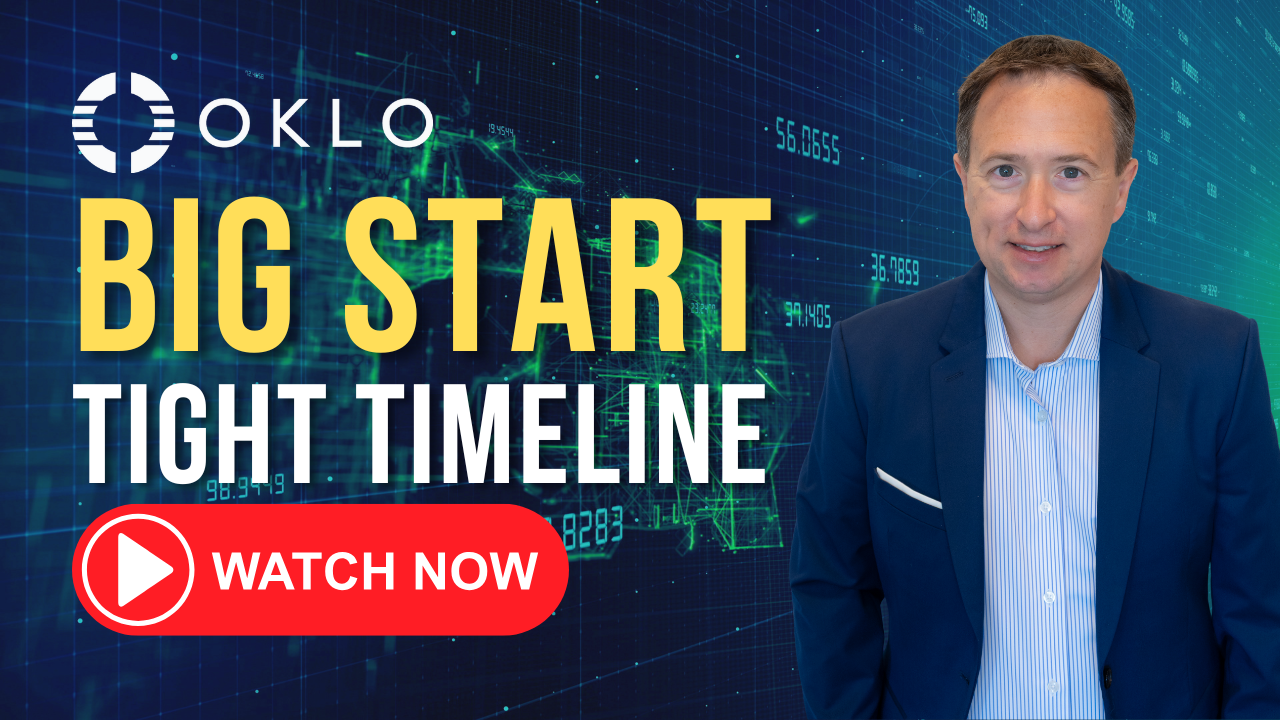With shares up 402% year to date, Oklo (OKLO +0.20%) has already generated some impressive returns for its early backers. While nuclear energy has historically been a somewhat neglected sector of the economy, it is finally gaining Wall Street's attention because of its ability to deliver the vast amounts of carbon-neutral electricity that will be needed to power data centers and other forms of artificial intelligence (AI) infrastructure.
Let's see whether or not the company still has millionaire-maker potential.
Generative AI has sparked a race for energy
For the last few years, energy generation hasn't been a particularly attractive target for investment in the U.S. According to the Energy Information Administration (EIA), demand was essentially stagnant for most of the century, with just 0.1% growth between 2005 and 2020. Demand for electricity started to pick up sharply after the COVID-19 pandemic, and the trend could accelerate over the coming decades.
The main culprit will be generative AI. Large language models (LLMs) like ChatGPT require a tremendous amount of power -- with experts estimating that one query on the platform consumes 10 times as much electricity as a conventional Google search, and generating an image is equivalent to charging a smartphone. That isn't even considering the vast amount of computing power needed to train the LLM in the first place.

NYSE: OKLO
Key Data Points
Hopefully, AI data center costs will go down over time. But even in the best-case scenario, the rise of AI threatens to undo the world's meager progress toward fighting climate change. And although Bill Gates (the former CEO of technology and data center giant Microsoft) no longer believes reducing carbon emissions is the best way to solve the problem, there is still widespread concern about the issue. Companies like Oklo could offer a solution.
Oklo could help power the AI build-out
Nuclear energy is ideal for solving the AI training dilemma because it can provide high and steady output without relying on weather discrepancies and battery storage, unlike alternative green energy sources like solar and wind. Furthermore, it generates no direct carbon emissions, although it does create nuclear waste as a byproduct.
Oklo aims to build upon the technology's existing strengths by using the spent nuclear waste itself to generate even more energy. And it isn't sitting still. In September, the company announced plans to build a $1.68 billion recycling facility in Tennessee to create fuel for its fast reactors. Management is also pursuing a deal with the Tennessee Valley Authority to potentially recycle its spent fuel to sell energy back to the utility.
While relying on spent nuclear fuel might look like an inherently limited business strategy, it isn't. Oklo believes its innovative fast-reactor design can extract most of the energy that traditional nuclear power plants left behind. And the company claims that the 94,000 metric tons of used nuclear fuel stored around the U.S. contains recyclable energy equivalent to 1.3 trillion barrels of oil -- 5 times Saudi Arabia's proven reserves.
Investors should stay grounded

Image source: Getty Images.
It would seem that Oklo has the Midas touch, turning toxic trash into valuable energy. But investors should remember that all of this is theoretical. And Oklo hasn't yet proven that its technology is safe and commercially viable.
The company is still waiting for a series of regulatory approvals from the U.S. Nuclear Regulatory Commission, including its Principal Design Criteria, which aims to establish safety, reliability, and performance requirements for its reactors. The entire regulatory process could take years, even in the best-case scenario. And while Oklo's future remains somewhat theoretical and speculative, its current fundamentals are very real.
The company generates no revenue. Meanwhile, operating losses increased 58% year over year to $28 million, mainly due to the spending required for research and development needed to bring its nuclear fast-reactor technology closer to the finish line. With sustainable profitability years, if not decades, away, investors should expect substantial equity dilution as management turns to outside capital to maintain operations. Oklo is an exciting company. But it's hard to get excited about the stock right now.






